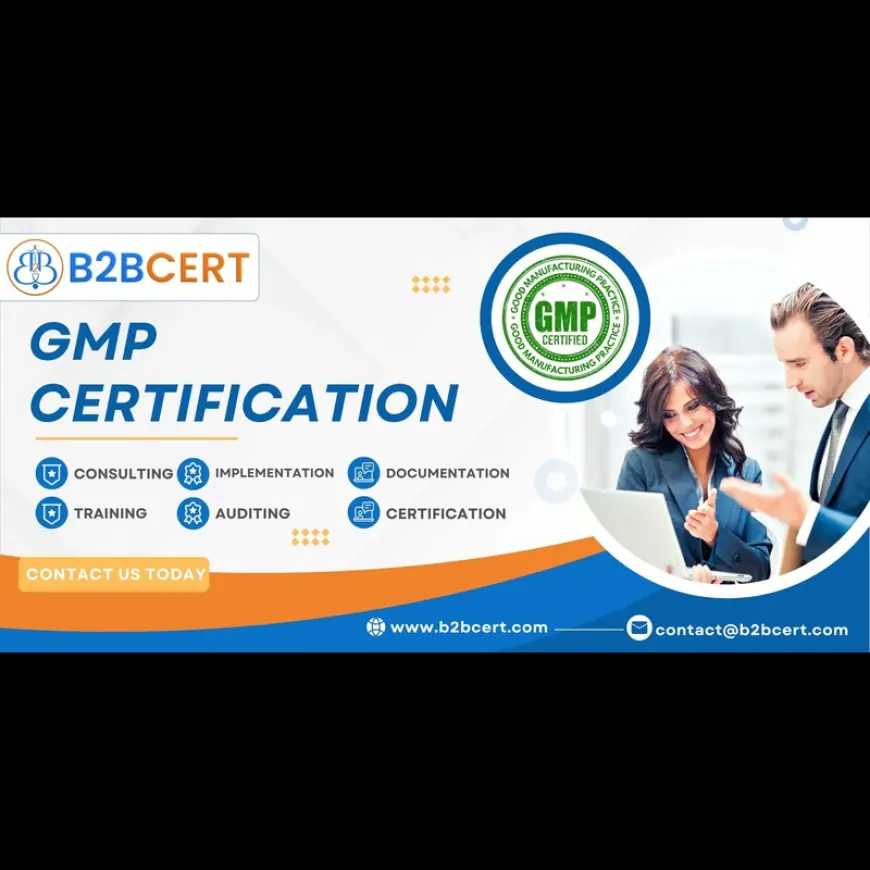Good Manufacturing Practice (GMP) certification is an essential benchmark for organizations involved in the manufacturing of food, pharmaceuticals, cosmetics, and other regulated products. GMP ensures that products are consistently produced and controlled according to the highest quality standards, mitigating risks related to contamination, errors, and variability. In Vietnam, GMP certification has become an increasingly important requirement for businesses looking to maintain competitive advantages in both local and international markets.
This blog post will explore the process of GMP certification in Vietnam, the services available, and the significance of GMP audits for maintaining compliance.
GMP Implementation in Vietnam
The implementation of GMP in Vietnam has gained momentum over the past few years, particularly as the country strengthens its manufacturing sector and expands its exports. GMP guidelines are vital for industries such as pharmaceuticals, food production, and cosmetics, where quality control is paramount to consumer safety and product effectiveness.
In Vietnam, GMP implementation is driven by both local regulations and international standards. The Ministry of Health (MOH) is responsible for enforcing GMP standards in the pharmaceutical sector, while other regulatory bodies manage GMP for food and cosmetics industries. The Vietnamese government has enacted laws and regulations that align with global standards, such as those from the World Health Organization (WHO) and the European Medicines Agency (EMA), to ensure that local manufacturers are compliant with international market requirements.
The process of implementing GMP begins with a comprehensive evaluation of the company’s existing manufacturing practices. This includes assessing all aspects of production, from raw material sourcing and storage to the final packaging and labeling of products. It is essential to identify areas where improvements can be made to comply with GMP standards.
Once gaps are identified, organizations must make necessary adjustments to their processes. These may involve upgrading facilities, enhancing staff training, implementing stricter quality control protocols, and investing in equipment that ensures high levels of product consistency. After all the processes have been adjusted to meet GMP Implementation in Zambia standards, companies can proceed with the formal certification process.
GMP Services in Vietnam
There are several GMP services available in Vietnam to help organizations navigate the certification process, ensuring compliance with national and international regulations. These services include consultation, training, and certification support.
-
GMP Consultation Services
Professional consultants in Vietnam assist businesses in understanding the nuances of GMP certification. These experts provide guidance on the regulatory framework, help with gap analysis, and develop strategies for full GMP compliance. Consultants also offer solutions tailored to specific industries, whether pharmaceutical, food processing, or cosmetics.
-
GMP Training
Training is a critical component of GMP implementation in Vietnam. Staff members across all levels of an organization need to be educated on GMP practices, from production staff to quality assurance teams. Training programs are designed to ensure that employees understand the key principles of GMP, including hygiene practices, documentation, equipment calibration, and testing protocols.
-
GMP Documentation Support
In Vietnam, thorough documentation is crucial for demonstrating compliance with GMP standards. Many organizations seek assistance in preparing the necessary documentation, including standard operating procedures (SOPs), manufacturing records, and quality control data. Consultants and services providers help businesses create comprehensive and accurate records to meet GMP auditing requirements.
-
GMP Certification Assistance
After implementing GMP protocols, companies often turn to certification bodies to obtain official GMP certification. These organizations conduct audits, evaluate processes, and verify that the company meets all necessary standards. GMP Services in Uganda provides recognition that a company’s manufacturing processes meet stringent quality requirements, both locally and globally.
GMP Audit in Vietnam
The GMP audit process in Vietnam is a vital step in the certification journey. Audits are conducted by accredited third-party organizations, such as certification bodies or regulatory agencies. The audit process ensures that a business's manufacturing practices align with GMP standards, which are essential for product safety and quality assurance.
The GMP audit begins with a review of the company’s documentation, followed by an on-site inspection. Auditors assess facilities, equipment, and processes to verify that they meet GMP standards. During the audit, particular attention is given to areas such as cleanliness, safety protocols, and employee training programs.
Auditors also verify that quality control systems are in place to monitor every aspect of the production process, from raw material handling to finished product testing. They check whether procedures for corrective actions and product recalls are in place and whether the company has a system for managing complaints and non-conformance.
Once the audit is completed, a report is issued detailing any non-compliance issues. Companies are given time to address any shortcomings, and a follow-up audit is conducted if necessary. After successfully passing the audit and addressing any corrective actions, the organization is granted GMP certification.
Conclusion
GMP Registration in Bahrain plays a crucial role in enhancing product quality, ensuring consumer safety, and improving market access. With the right implementation, services, and audits, companies in Vietnam can achieve GMP certification and establish a solid reputation in both local and international markets.
By partnering with experienced GMP consultants, investing in training, and preparing for rigorous audits, businesses can not only meet regulatory requirements but also position themselves as leaders in quality manufacturing, contributing to the growth of Vietnam’s economy.













